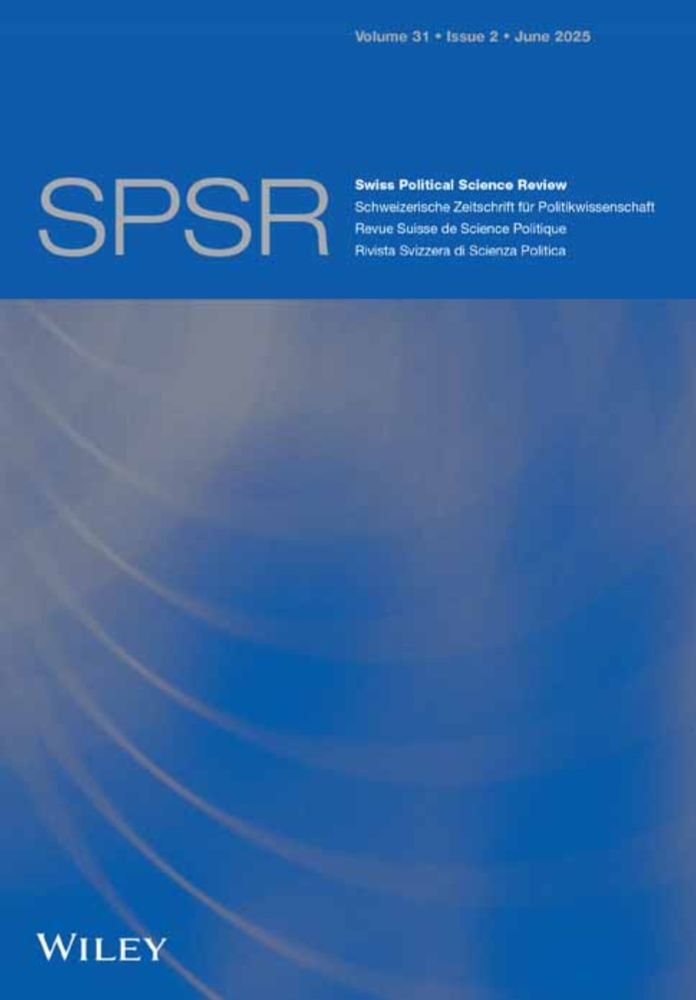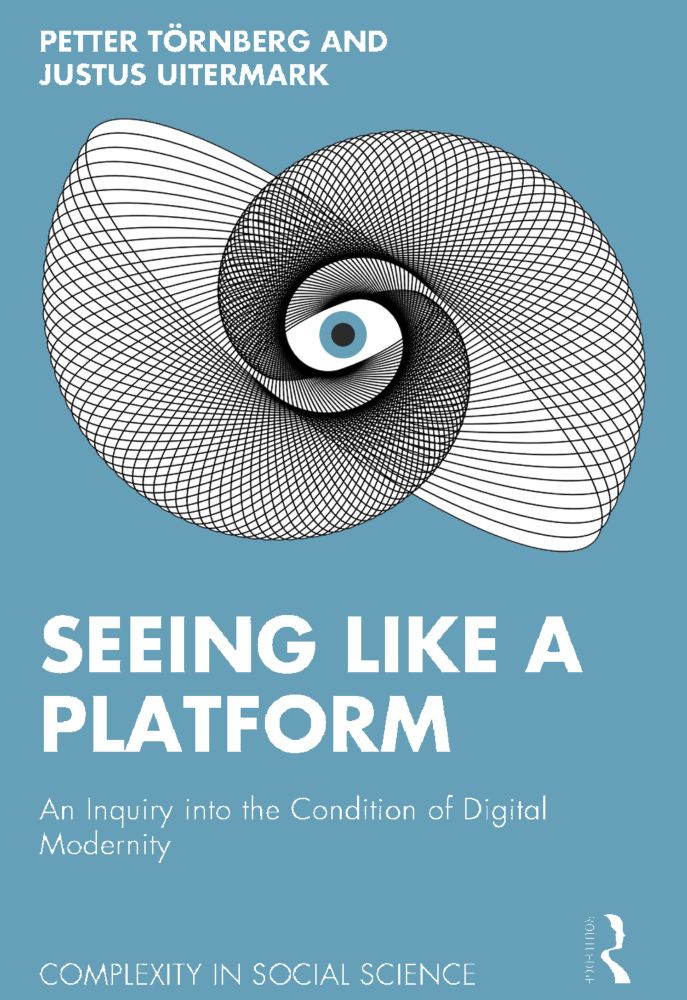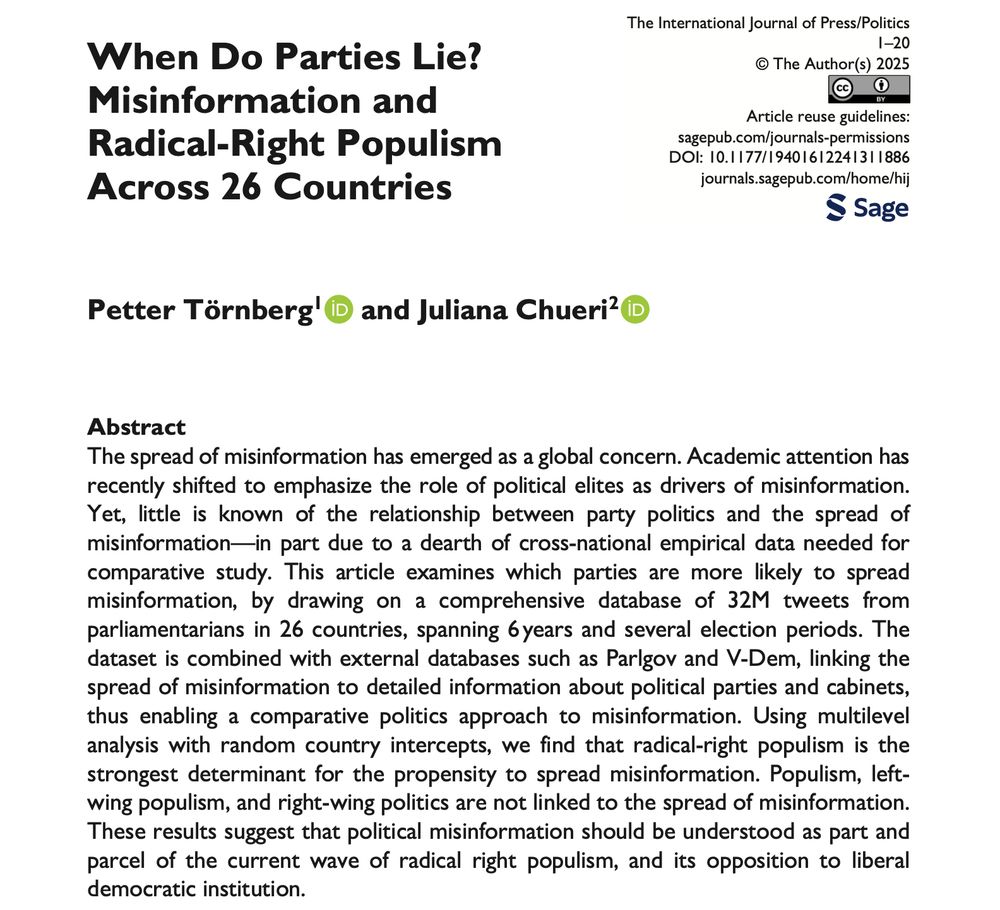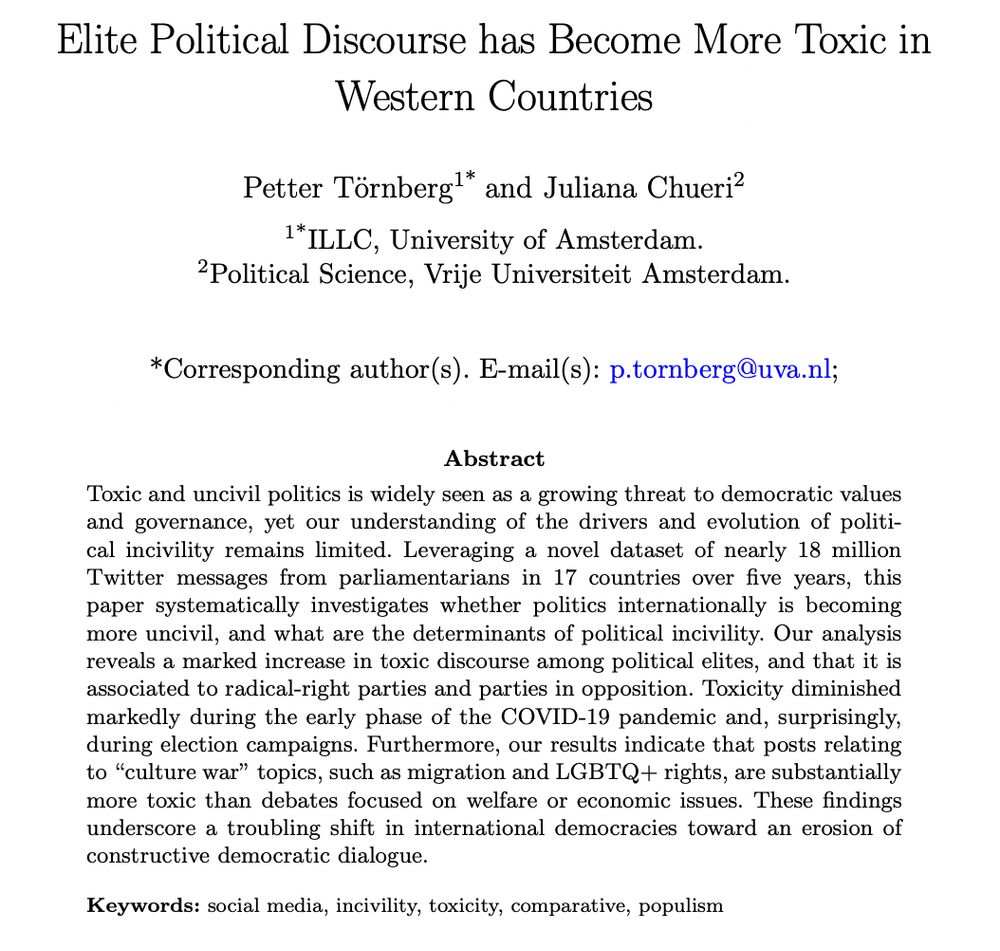Juliana Chueri
@julianachueri.bsky.social
1.7K followers
630 following
26 posts
Assistant Professor in Comparative Politics at VU Amsterdam | Latinoamericana
Posts
Media
Videos
Starter Packs
Juliana Chueri
@julianachueri.bsky.social
· Aug 31
Juliana Chueri
@julianachueri.bsky.social
· Aug 31
Juliana Chueri
@julianachueri.bsky.social
· Aug 31
Juliana Chueri
@julianachueri.bsky.social
· Aug 31
Reposted by Juliana Chueri
Petter Törnberg
@pettertornberg.com
· Aug 25

Vacancy — PhD Position on Improving Social Media Using Large Language Models
The Institute for Logic, Language and Computation (ILLC) at the University of Amsterdam is inviting applications for a fully funded PhD position in the NWO VIDI project "Improving Social Media Using L...
werkenbij.uva.nl
Juliana Chueri
@julianachueri.bsky.social
· Jul 23
Juliana Chueri
@julianachueri.bsky.social
· Jul 23
Reposted by Juliana Chueri
Reposted by Juliana Chueri
Reposted by Juliana Chueri
Juliana Chueri
@julianachueri.bsky.social
· Apr 10
Reposted by Juliana Chueri











